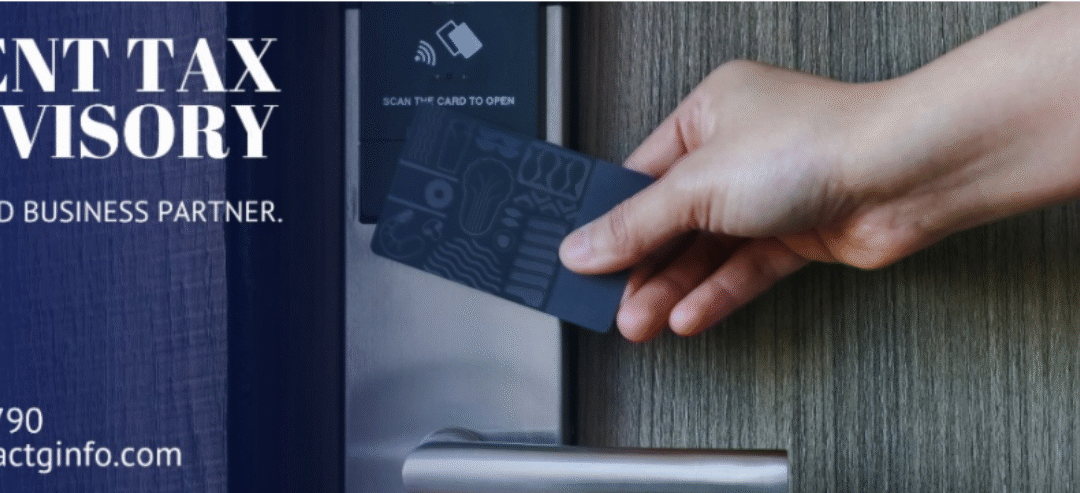Many hotel owners overlook the significant impact property taxes can have on their bottom line. How to make sure your property taxes are under control in just 5 steps.
Owning a hotel can be both rewarding and challenging. One of the biggest challenges? Property taxes. Property taxes can account for up to 40% of a hotel’s cost of occupancy. Unfortunately, they are often not prioritized, leading to costly mistakes.
In this guide, we’ll explore six tips that can help you better manage your hotel property taxes. Implementing these strategies can save you money and help you focus more on running your business effectively.
- Do Your Due Diligence
Before Acquiring a Property: When considering purchasing a hotel, understanding its property tax implications is crucial. Conduct thorough research on historical tax rates and assessments of similar properties in the area. This helps in predicting future tax liabilities and planning your budget accordingly. Understand the local assessment cycle: Some areas reassess properties annually, while others do it every few years. Knowing this can help you anticipate changes in tax liability. Investigate valuation methods: Different jurisdictions may use varied methodologies to value properties. Familiarize yourself with these to avoid surprises.
Case Example: A hotel investor in New York City discovered that the local reassessment cycle occurs every three years. This knowledge allowed them to plan for a significant tax increase and budget accordingly, preventing a financial shortfall.
- Look for Errors and Opportunities
Review Property Records: Local tax assessors manage vast numbers of properties, and errors in records are not uncommon. Reviewing these records can uncover mistakes that, when corrected, could lower your tax liability. Check for inaccuracies: Ensure the assessor’s records accurately reflect your hotel’s size, age, room count, improvements, and occupancy type. File corrections: Use the provided protest avenues to correct any mistakes found. Legal Advice: don’t hesitate to hire an attorney that specializes in property tax appeals Practical
Example: An owner of a newly constructed hotel in Los Angeles found that the property’s square footage was overstated by 15%. Correcting this error reduced their tax bill by thousands of dollars annually.
- Differentiate Investment Market Value from Property Tax Value Understand Property Tax Value
Investment market value and property tax value are not always aligned. For tax purposes, the value should only include real estate, excluding intangibles like brand value, licenses, and management contracts. Exclude intangible value: Ensure that the income attributed to personal and intangible property is excluded from your tax assessment. Leverage precedents: Familiarize yourself with relevant legal cases, like SHC Half Moon Bay LLC v. County of San Mateo, which highlighted the necessity to exclude intangible values from property tax calculations.
Example in Action: In a recent purchase, a hotel owner in Texas ensured that the value of their hotel’s brand and proprietary reservation system was excluded from the property tax assessment, reducing their taxable value by 25%.
- Real Estate Transfer Taxes
Plan for Transfer Taxes: When acquiring a hotel, it’s essential to understand whether the transaction is subject to real property transfer taxes. These taxes vary greatly by jurisdiction. Conduct a purchase price allocation: Segregate real property from tangible and intangible personal property to minimize tax liability. Understand local reporting requirements: Compliance with local reporting and audit procedures can save you from potential penalties.
Example: A hotel acquisition in Chicago involved a detailed purchase price allocation. By accurately categorizing assets, the owner minimized transfer tax liabilities and avoided unnecessary costs.
- Know and Use Your Assessment Rights
Appeal Processes: Every state has its procedures for disputing property tax valuations. Understanding these procedures is key to effectively managing and reducing your property tax burden. Filing appeals: Know the deadlines and the required evidence for filing appeals in your jurisdiction. Review annually: Regular reviews of your property’s assessed value can catch overvaluations early, allowing timely appeals.
Practical Insight: A hotel in Florida successfully appealed its property tax assessment by providing comprehensive evidence of overvaluation. This annual review process saved the business significant amounts in taxes over the years.
Conclusion: Property taxes can significantly impact your hotel’s financial health. By conducting due diligence, identifying errors, understanding tax values, planning for transfer taxes, using your assessment rights, and maintaining communication with local tax offices, you can effectively manage and control your property tax liabilities.
At Ascent Tax & Advisory, we are committed to helping hotel owners navigate the complexities of property taxes. Our team of experts offers personalized advice and innovative solutions tailored to your unique needs. With over 30 years of experience, we help you not only comply with tax regulations but also find opportunities for tax savings.
Let’s Discuss Your Tax Strategy
Have questions about how these tips apply to your hotel? Need a detailed property tax review? Contact us today for a complimentary consultation. Let’s work together to ensure your hotel’s financial ascent.
By implementing these strategies, you can focus more on providing excellent service to your guests and less on worrying about your property taxes. Your financial ascent begins with informed decisions and proactive management. Join hands with Ascent Tax & Advisory and unlock your full potential in the world of hotel ownership and management.

